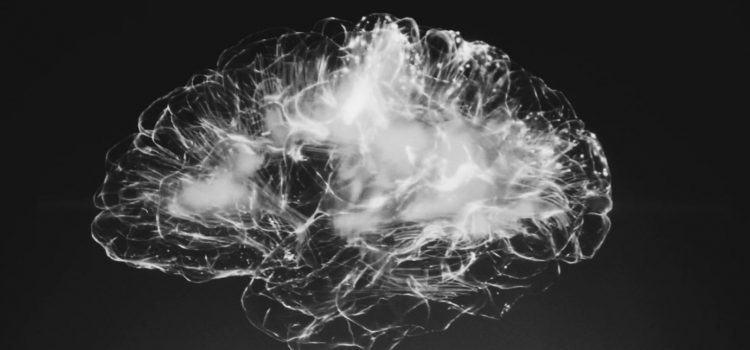

This article is an excerpt from the Shortform book guide to "Stealing Fire" by Steven Kotler and Jamie Wheal. Shortform has the world's best summaries and analyses of books you should be reading.
Like this article? Sign up for a free trial here.
What is a peak state of consciousness? What are the four different altered states that you can achieve?
In their book Stealing Fire, Stephen Kotler and Jamie Wheal explore the concept of peak states and place them in a historical context. They claim that altered states of consciousness are subjective experiences that are different from normal consciousness, while peak states occur at the high end of the spectrum.
Read on to learn about the four types of peak states, according to Kotler and Wheal.
Peak States Today and in the Past
In their book Stealing Fire, authors Stephen Kotler and Jamie Wheal explore peak states of consciousness and contextualize them in history. Namely, they argue that today’s ecstatic revolution is the most recent development in an age-old historical pattern.
(Shortform note: Recent organizations such as The Third Wave support the authors’ contention that peak states are increasing in popular interest. Paul Austin founded The Third Wave in 2015 to advocate for the responsible and informed use of psychedelics as a route to peak states and personal transformation. They provide a range of free guides to various psychedelic substances as well as a comprehensive course to microdosing, which they promote as a safer way to reach peak states.)
What Are Altered States of Consciousness? The 4 Types
According to the authors, peak states (or “ecstasis”) are a specific set of altered states of consciousness. “Altered states of consciousness” means a nonstandard subjective experience—think inebriation versus sobriety.
While altered states include any state other than normal consciousness, peak states occur at the “high end” of possible subjective experiences. In these states, you might encounter novel sensations or visual stimuli, experience heightened creativity, or gain access to seemingly mystical awareness.
(Shortform note: Etymologically, “ecstasis” comes from the Greek *ek- histanai, meaning roughly “to be displaced or removed from the normal place.” This often came with the connotation that the displacement occurred in your mind and emotions. Thus, to experience ecstasis means to depart from your normal mental and emotional conditions, often dramatically so.)
The authors specify a set of four peak states. These states share several features, including nonstandard perceptions, intense or unusual emotions, and shifts in your sense of self, time, and reality.
Peak State #1: Flow—The state of heightened awareness and “in-tune-ness” associated with master-level performance of a skill. According to the authors, athletes, chess masters, craftspeople, martial artists, and others experience flow when performing at their peaks.
(Shortform note: Psychologist Mihaly Csikszentmihalyi first popularized the concept of flow states. In his book Flow, Csikszentmihalyi explains that peak states come about when a highly competent person is stretched to the limit of their abilities. If they rise to the challenge, they can enter flow, a state where time seems to slow, perception grows sharper, and they can perform with a level of skillfulness that’s normally locked away.)
Peak State #2: Group flow—The state of enhanced social cohesion and awareness that occurs when groups of people fully immerse themselves in shared experience (common at concerts, raves, and other festival environments.)
(Shortform note: Researcher R. Keith Sawyer, who studied under Csikszentmihalyi, argues that group flow tends to arise when ten key conditions are met. These conditions include having a shared goal, listening to and accepting one another’s contributions, having comparable skill levels, and being familiar with the other group members.)
Peak State #3: Psychedelic experience—The states of expanded consciousness that occur following consumption of a psychoactive substance such as psilocybin mushrooms (“shrooms”) or lysergic acid diethylamide (LSD).
Peak State #4: Mystical experience or enlightenment—The various religious or spiritual states that the authors say can occur as a result of deep meditation, spiritual cultivation, or a near-death experience.
(Shortform note: States #3 and #4 above often correlate with experiences of selflessness (a reduction in self-importance) or loss of self (complete dissolution of your identity as a distinct individual). However, the research is still out on whether there are important phenomenological and neurophysiological differences between states reached via meditation versus psychedelics. One avenue toward clarifying the range of possible states lies in better identifying and researching the practices that can produce them. This is especially important because much of the research as of 2023 has focused on mindfulness meditation—just one method of dozens.)
Peak States Throughout History
Although peak states are gaining scientific support, there’s no guarantee that human society will successfully embrace and benefit from them. According to Kotler and Wheal, knowledge of peak states has cycled in and out of public awareness throughout history. They attribute this cycle to an ongoing battle between countercultural forces and law-and-order forces:
- Typically, countercultural forces strive to explore and normalize peak states and the methods of reaching them.
- Meanwhile, law-and-order forces work to suppress knowledge of peak states and maintain the status quo.
The authors give Ancient Greece as an example: There, a small group of artists, philosophers, and other cultural elites accessed peak states by drinking kykeon (thought to be an ancient psychedelic brew) in combination with music, dance, and philosophical discourse. However, this experience was confined to the elite, and government actors worked to prevent any lasting influence from their free-thinking counterparts. The authors contend that this cycle of emergence and suppression of peak states has repeated throughout human history.
(Shortform note: While the authors claim the existence of a long-running, cyclical battle to liberate peak states, they don’t offer robust evidence of such a battle. Beyond Ancient Greece and kykeon, they jump straight to the 20th-century psychedelic movements in America, and then to the 2010s. The routes to peak states—such as spiritual practice and psychedelics—have existed for thousands of years. However, there isn’t clear evidence of a long-term governmental conspiracy to suppress any attempt to democratize them.)
Today, the authors argue, we’re in the midst of the most recent resurgence of interest in peak states. As evidence of this, they point to the nearly four trillion dollar segment of the economy that provides experiences that alter your state—in their accounting, this includes everything from alcohol, tobacco, and marijuana to video games, movies, and virtual reality. In addition, more and more people have begun to explore peak states through music, dance, psychoactive substances, flow-inducing extreme sports, meditation, and more.
(Shortform note: In order to make their point, the authors take a broad view of what constitutes an altered state, diverging from the range of states they earlier described as most important. For instance, the use of alcohol, tobacco, dance, and music are long-standing features of many cultures—so it’s not clear how these activities form part of a modern-day surge of interest in peak states. There does seem to be increased interest in phenomena such as flow and psychedelic experience, but it may not be as easy to quantify as the authors suggest.)

———End of Preview———
Like what you just read? Read the rest of the world's best book summary and analysis of Steven Kotler and Jamie Wheal's "Stealing Fire" at Shortform.
Here's what you'll find in our full Stealing Fire summary:
- A modern revolution in the understanding of peak states of consciousness
- The key benefits of accessing peak states
- How some are turning to LSD and other substances to reach a peak state






